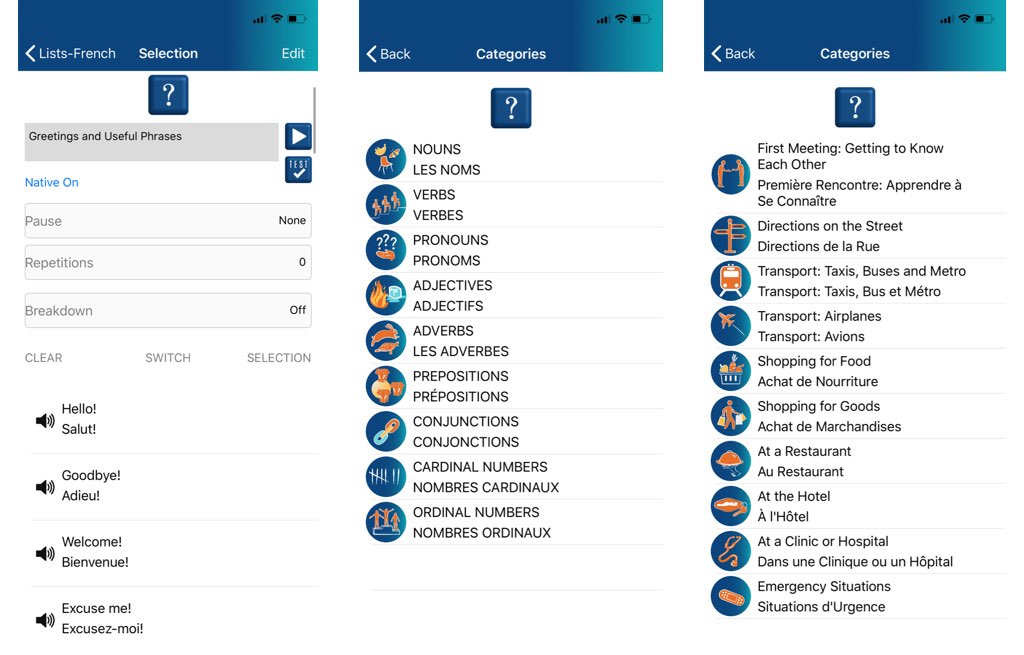Multilingual And English As A Second Language Education In Formerly Colonized Nations
In the United States, many people struggle with the idea of learning more than one language. Multilingual education is not a focus in the US, and is not seen as the necessity that it is in many other nations. Meanwhile, in former British colonies such as India, South Africa, and Nigeria; multilingual education allows people to keep a bond to their cultures while also serving as a uniting voice. Each of these regions has their own way of handling this education, and their own reasons why they approach multilingualism in the way they do. The unifying fact is that multilingualism is an important part of their education, cultural preservation, and economic progress.
Why Is Multilingual Education Important?
All of these nations have a shared history of being British colonies. As such, English many times became a language of both economic survival and necessity. English was declared to be the official languages of these countries, or would be declared bi-lingual with the dominant national language co-existing with English. In order to do business or participate in civic actions, you would have to be able to speak both languages in some capacity.

Education systems were designed to teach a bi-lingual population, however in many cases this was limited only to the upper and upper middle classes. The lower classes were in many cases denied these opportunities as a matter of station, education was out of reach and so they only knew their local language with any fluency. This, of course, only served to stratify the class divide and benefited the wealthy and colonizers more than anyone.
As time went on, each of these nations gained independence or had a transfer of power of some kind, and as such they faced the question of the future of their multilingual education. They each took different yet similar approaches that we will be taking a look at in this article. We will also be looking at the history of multilingualism in these regions and why it can be a cultural necessity as well.
The Encore!!! app is a tool that is developed to facilitate multilingual education, as such, we are very interested in taking a look at the different approaches and lessons that can be learned worldwide. We also want to see what lessons can be learned from these countries’ experiences.

Multilingualism In India
We are starting off by looking at the largest of these countries by population: India. In India today the official languages are Hindi and English, and over 26% of the population is bilingual. Languages in India are complex, with 122 major languages and 1369 “rationalized mother tongues”. The Constitution of India recognizes 22 official regional languages as of 2011. The individual states of India are divided based on languages and social lines in most cases, and they can legislate their own official languages. This has some interesting effects where some regions have chosen minority languages as their official languages.
The History Of English As A Second Language In India
The history of the colonization of India is much too long of a story to address fully here. A shortened version of the story will say that many European nations made their way across the region looking to control trade, and after a long struggle with the Dutch, Britain ultimately laid claim to the nation. In 1858 India came under direct control of the British crown. English came as a language earlier with the East India Company, and as the era of British Crown rule began, schools across the country had been established that taught English as a main language.
When India gained independence in 1947, the only common language across India was English. In the attempts to shake off the effects of colonization, attempts were made to make Hindi the sole national language. However, many of the states did not speak Hindi and it was decided that English would be temporarily retained as a second language. That temporary retention has moved to a more permanent status as English has had a change in its perception from colonizing language to a means for economic progress.
Multilingual Education In India
India has had an educational policy of trilingual learning since 1968. This policy means that in schools students are taught in their regional state language and have to study Hindi or English for their full education, as well as either a modern Indian language or a foriegn language for three to five years. This however does not always work in practice, and many English language schools teach a more English only education.
Unfortunately, education is still restricted in many ways to the more elite in India. While compulsory education is provided to children from ages 6-14, many public schools are severely underfunded and private schools dominate the landscape in some areas. Meanwhile, in rural communities, educational completion rates are lower as well as the literacy rates.
Currently, educational policy planning is looking towards focusing on teaching children in their mother tongue. As schools that teach in English only have trouble with most parents not being able to speak English. The divide between what a student speaks at home versus school causes problems with comprehension. The new focus on multilingual education can serve to help more students learn in a nation that has retained a resistance to a single common language. Focusing on teaching in the mother tongue of the student while they establish cognitive abilities, will help them to learn English and other languages better in later years.
Multilingualism In Nigeria
Nigeria’s official language is English and it is spoken as a second language by 60 million of the nation’s 200 million people. Along with English there are over 525 native spoken languages in Nigeria. English is a more popular language in the urban centers of the country, as it is a major force in global business and trade. Meanwhile, rural areas tend to use their ethnic / regional languages as a dominant language.
Multilingualism has a more mixed perception in Nigeria than in some other countries. There are divides in perception with some feeling that the growing dominance of English is bad for the local languages and cultures, with another side of the discussion seeing multilingualism as fueling regional conflicts due to a lingual divide and arguing for a further assimilation into a national language such as Nigerian English.
The History Of English As A Second Language In Nigeria
Nigeria was formally colonized by the British Crown in 1900, though that was after 200 years of increasing British influence on the region. In 1960, Nigeria gained its independence from the crown and English was established as the official language of the country. Nigerian English has become a nativized form of English and it has some unique elements that separates it from the British English from which it originated. Nigerian English has its own sets of grammatical, pronunciation, and spelling rules. It also has its own variations and levels of usage based on region and education.
Multilingual Education In Nigeria
The educational system in Nigeria has many of the same issues as India. Economic and social divides mean that poor students and those in rural areas do not have the same educational prospects as those from wealthier urbanized families. English is the official language and is used in business, entertainment, and is the dominant language in education; especially in higher education. However, a renewed look at how students learn is resulting in a discussion about students learning better when being taught in their native languages. This is resulting in policy discussions similar to India, where local languages are being seen as a link to better understanding and education.
Multilingualism In South Africa
South Africa has 35 indigenous languages of which 10 are considered official languages. English is the 11th and primary official language when it comes to governmental participation. English is only the 4th most common language in the country, spoken by just under 10% of the population; however it is the dominant language in government and media. Zulu, Xhosa, and Afrikaans are the three most spoken languages.
The History Of English As A Second Language In South Africa
The original colonizers of South Africa were Dutch, and eventually their language became Afrikaans. However in the 1800’s, the British took control of the area and proclaimed English as a national language. The history of the languages of South Africa is the story of colonization, slavery, apartheid, oppression, and the struggles of its people.
South African English is a variety of English spoken in the area, and it has closer ties to British English than a nativized counterpart like Nigerian English. This variety has its own sub varieties that, much like the history of the nation itself, is divided along class and racial lines.
Multilingual Education In South Africa
In South African schools, English is the preferred and primary language. This has been influenced heavily by parents and public perception that an English focused education is superior. Much like in the discussions for the previous countries, there is an abundance of policymakers looking at the research and understanding that education that starts in a student’s home language provides greater understanding and results.
This could also help counter the growing concerns of speakers of languages such as Bantu, who are concerned about the loss of their language to English.
Multilingual education is also increasing in popularity in higher education as well. Knowing that students need to be able to move into the world and communicate with people who do not speak English in their communities, as well as using the same research about students connecting with material in their home language, universities are encouraging this continued cultural connection.
Encore!!! And Multilingual Education
The Encore!!! app operates in much the same way as the educational plans that these countries are looking towards. When you are learning and relating via your home (L1) language, you can much easier learn a second (L2) language. As our world becomes more connected, the ability to be multilingual will become more and more important.

While English is currently a dominant language in trade and international politics, other languages are starting to increase in power as well. Learning to communicate in more languages will help everyone participate in the global economy. At the same time, Encore can also help people to learn regional languages and communicate with people who do not speak English as fluently or even just allow people to connect with their own cultures better.
Conclusion
Multilingual education is increasing around the world. In many countries that were once English colonies, this means developing a better relationship with native languages as well as increasing education in English. Research shows that the connection between the two is strong, and focusing on a monolingual education in a place with diverse languages has more negative effects than positive.
Many of these lessons are also applicable in the United States and Canada too. Pressures for immigrants to shed their native languages, and ESL classes that focus on only teaching English do not properly connect with students. Connecting with our cultures and home languages can help keep indigeonous languages alive, while also helping us to communicate with more people.
How to Use Contents in this folder
